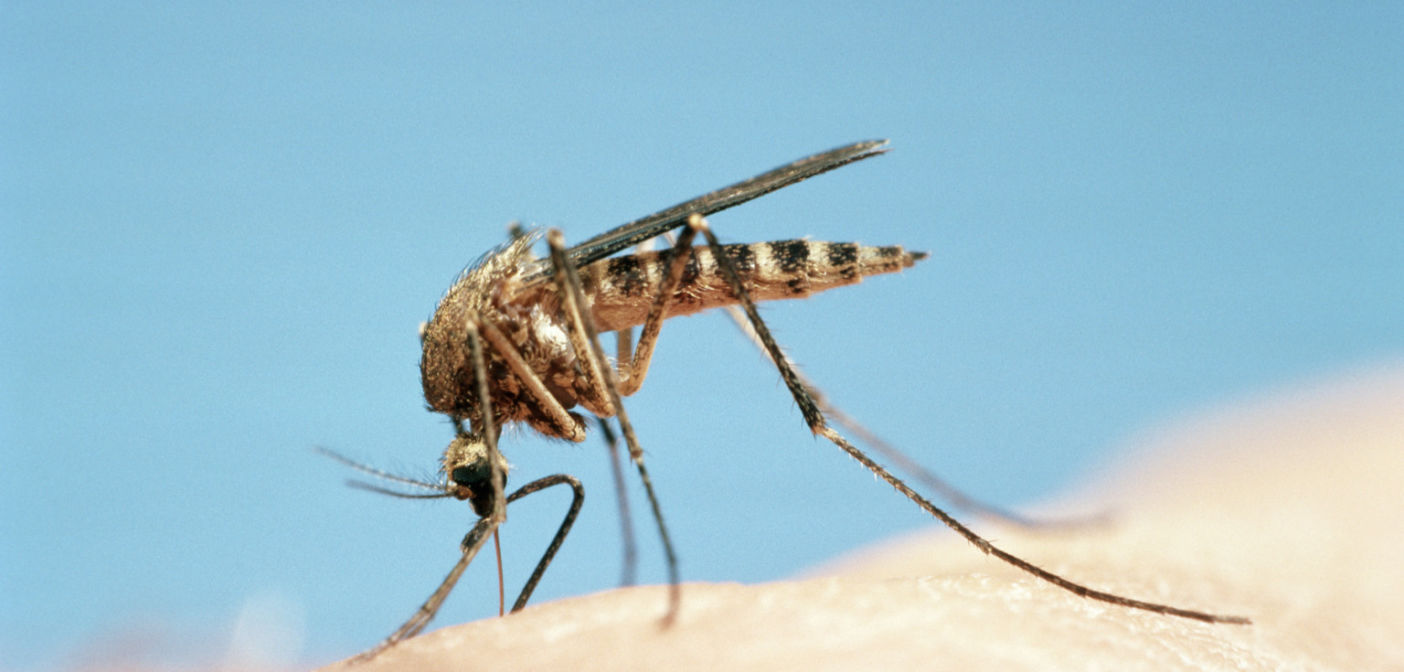So Long, Sucker: Swatting the Myths About Mosquitoes in Beijing
Summer in Beijing: time to get out the T-shirts and shorts, and enjoy the sunshine. But beware, there are bloodsuckers about ... All that exposed skin just presents a feast for mosquitoes, as they wake from their winter hibernation.
Mosquito bites are not just annoying, but can be dangerous. Malaria kills around half a million people every year, and recently there has been concern about outbreaks in South America of the Zika virus, which can cause birth deformities when pregnant women are infected. Other diseases spread by mosquitoes include yellow fever, dengue fever, Japanese encephalitis, and West Nile virus.
First the good news: you’re unlikely to contract any serious illness from a mosquito bite in Beijing. There are over 3,500 different species of mosquito, divided into two main sub-families and 43 genera. Of these, not all are bloodsuckers, and many of those that do bite can’t transmit diseases. Even then different diseases are associated with different genera – and in all species, only the females bite.
It’s mainly the Aedes genus that transmits Zika; its name means “unpleasant,” appropriately enough, since it’s also responsible for spreading yellow fever, dengue fever and numerous other nasty conditions. Malaria meanwhile is linked to the Anopheles mosquito (meaning “useless” – Victorian naturalists were obviously no keener on mosquitoes than we are.) While both can be found in Beijing, they aren’t present in sufficient numbers or the right species to present any serious risk of infection.
However mosquito bites are still a pain. Their saliva is an anticoagulant, preventing blood from clotting and making it easier for them to drink. It’s the proteins in this saliva which cause bites to itch and scratching can lead to infection. Hydrocortisone cream or antihistamine tablets can help soothe itching. If bites do become infected you should consult a medical professional, as antibiotics may be required.
But it’s better to avoid being bitten in the first place. Mosquitoes lay their eggs in stagnant water, so you should clean out anywhere in or around your home where they may be hatching: ponds, pools, fish tanks, vases, buckets, and pipes. Air conditioner vents too can be a breeding ground.
You’re unlikely though to be able to eradicate them completely, so the next best thing is to keep them at bay. Check that your window screens are properly fitted and in good repair. Loose fitting clothing that covers your skin may be a better choice than shorts and T-shirt, especially at dusk and dawn when mosquitoes are most active.
Repellents
There are a wide variety of repellents on the market, and a number of natural substances which are touted as deterring the bloodsuckers. To understand why (and whether) they’re effective, it helps to understand how mosquitoes find their prey.
Mosquitoes operate primarily by smell. They are drawn to the odors of the carbon dioxide which we exhale and the lactic acid in our sweat, and can detect these from as much as 50 yards away. At 10 yards they can see their target as a dark shape, and from a yard away they use body heat to close in.
Most repellents work by masking our natural odor with other strong smells, so there are a whole variety of substances which are effective, including garlic, cinnamon, peppermint, and citronella. Chemical repellents operate on the same principle, but have one significant advantage over natural substances: they last longer. N,N-Diethyl-meta-Toluamide, better known as DEET, is the active ingredient in most commercial repellents, and will work for up to eight hours, whereas the natural alternatives are effective for a couple of hours at best. Unless you’re willing to wake up two or three times a night to reapply your repellent, then DEET-based products are your best bet.
When buying repellents over the counter, the brand isn’t important – only the amount of DEET it contains 30 percent concentration is long-lasting and safe to use on adults and children over two months old.
On the other hand, substances which have a sweet smell similar to lactic acid, such flowery perfumes, can attract mosquitoes. Since they are drawn to sweat, simply showering can help reduce bites (as long as you don’t use scented soap.) There are two kinds of sweat gland: eccrine glands which produce odorless sweat, and apocrine which produce smelly sweat. People of East Asian origin have significantly fewer apocrine glands, and are therefore less likely to be bitten! There’s no evidence though that your gender, age, or blood type has any impact.
You can’t change your sweat glands, but you can change your clothes. Since they’re looking for large shapes in the dark, mosquitoes are drawn to dark colors. Wearing brighter colors will help to keep them at a distance.
A different, “hi-tech” approach to repelling mosquitoes uses ultrasound – very high frequency noise which is inaudible to the human ear, but which supposedly frightens off mosquitoes because it resembles the sound made by dragonflies, their natural predator.
The latest version of this technology comes in the form of smartphone apps. There’s only one problem: there’s no scientific basis for the idea, nor any evidence that it works.
The apps’ makers claim that they have many happy customers, and since the apps are mostly free that there’s no harm in trying it. Scientists though are concerned that people will rely on these devices and neglect solutions which actually work, potentially putting themselves at risk. One leading entomologist videoed himself entering a tank full of dengue-fever carrying mosquitoes with a smartphone in his hand, ultrasound buzzing away. The mosquitoes can be seen descending hungrily on him, completely undeterred. (Fortunately, he was wearing protective clothing, and survived unscathed.)
Electronic “zappers” are also ineffective, because they kill all insects indiscriminately, and only catch a small proportion of mosquitoes. There is one low-tech solution which is said to be effective though: a saucer of beer in the corner of room is supposed to attract the bloodsuckers, who then drown in the liquid. Whether or not it works, it’s a good excuse to open a cold one on a hot summer’s day ...
This article originally appeared on our sister site beijingkids.
Photo: huffpost.com







